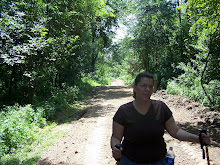Most people who know me know that I'm a huge coffee drinker. Even after going decaf a couple years ago I still drink a large amount of coffee. But I really should say that I'm a hot beverage person. I drink not just coffee but tea, cocoa, hot cider, mulled wine, and even just hot water. If it's a warm beverage, it's for me. I love tea. There are so many varieties, and unlike with coffee I can easily tell the difference between flavors. And this week I'm inspired to try even more different types of tea.
I just finished the book "For All the Tea in China" by Sarah Rose and was blown away by how much I learned in a scant 250 pages. The book follows Robert Fortune, a botanist in the 1800s who was sent by the East India Company to China to steal tea. Up until that point tea was only grown in China and Britain was becoming dependent on the drink. So the East India Company wanted a source that they could control. So it was decided that tea should be planted in India, a country already under the company's control.
Over three years Fortune was able to gather and smuggle out of China enough tea plants that India was able to produce a crop and in a short period of time nearly end Britain's reliance on Chinese tea. Rose describes it as one of the greatest industrial thefts of all time. It was one of the first instances of industrial espionage which nearly destroyed the Chinese economy. Especially since India was still shipping thousands of pounds of opium to China (If you haven't read about the Opium Wars, they are a fascinating topic.).
Reading the book made me even more curious about the East India Company, a company I knew something about but never really realized the full horror of what it did. Can you imagine having a for-profit corporation in control of your government? All your basic services at its whim? While we talk about corporate control here in the US I still don't have to rely on Wall Street for my fire protection or schools. Rose spends some time talking about the Honourable Company (as it was sometimes called) but left me wanting more, the mark of a great nonfiction book.
But the book also made me more curious about tea. I read a section about the Assam teas from India and was excited to realize that I had just picked up a Golden Assam from our local tea merchant, Gong Fu. The book talked about the Darjeeling teas, which I realize I've never had a great example of. There was a small discussion of monkey-picked teas, something that I had always been curious about (and now won't be trying). Suddenly I want to run down to Gong Fu and try all their teas. I want to sample them and write tasting notes the way people do with whiskey and scotch. A fascinating book. But be warned, it will make you crave tea. I don't want to think about all the cups I drank over the last two days of reading it.
Subscribe to:
Post Comments (Atom)


3 comments:
I was reading this blog having a cup of green tea.When I work, I drink coffee ,lately try to drink decaf which is very difficult to find in Japan but at home I am a tea drinker, this book sounds interesting.
When I was in Portland I went to a tea house where they had lots of puerh or toucha teas. I brought home a sticky rice scented toucha which you must come over and try. I need to find out more about them as they seem to be the rage on the coast.
The book sounds fascinating. Thanks for the post!
Fumiko, I'm so glad that you had a cup of tea while reading my post. I'm like you, I drink more tea at home and coffee at work. And I always drink decaf (at least with the coffee). I'm sorry that it's so hard to find decaf in Japan. I find that I can't handle too much caffeine as I get older.
Lisa, I would love to get together to try your tea. I'm not sure what I think of the puerh. It has a wonderful rich flavor but if I brew it too long, it gets bitter quick. I'll bring you some puerh if you let me try your toucha. I've never even heard of that type of tea. Yay, new teas.
Post a Comment